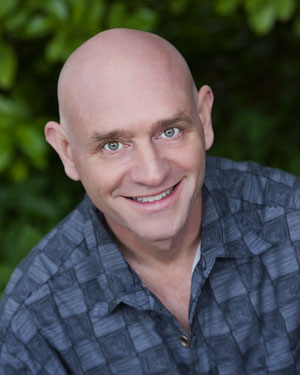
Psychology Career
When I was 31 years old (in 1994), I volunteered for a suicide and crisis line and discovered my passion for the helping professions. Four years later I went back to school and received a Masters in Psychology in 2002 and then a PhD in 2007. For years I’ve wondered how our romantic relationships were influenced by the relationships we had as children with our parents and my dissertation explored a component of this question. I looked at men’s early relationship with their fathers and the way they now relate in their romantic life. Classical theory states that parents of the opposite sex tend to influence later romantic choices of their children, yet I found a significant correlation between paternal parenting style and later romantic relationship style.

During my time in graduate school and since, I’ve worked at non-profit organizations, at an incarcerated boy’s facility, at a few counseling centers, in private practice, and as a professor for masters and graduate level psychology students. All of these experiences offered me a wealth of training and experience in working with diverse population of all ages including adolescents, couples and adults. I now work with such things as addiction, depression, anger management, OCD, trauma (PTSD), couples issues (communication, fighting, infidelity, anger), changes in life & circumstance, unresolved childhood issues, and repetitive unhelpful behavior, just to name a few.
I opened my private practice, Searching Pathways Therapy in 2010. Since that time, I have also served as adjunct faculty for Sofia University (formally the Institute Transpersonal Psychology) in Palo Alto California where I taught Masters and PhD level psychology courses in drug and alcohol assessment and treatment. I have also taught courses in adolescent psychology and Psychodrama training there.
The areas where I have been trained, or developed a deep interest in are as follows: Addictions and Compulsions, Father issues, Group Process, Relationship, Differentiation, Diversity, Attachment Theory, Motivational Interviewing, Transtheoretical Model of Change, Emotionally Focused Therapy, Cognitive Behavioral Therapy, Psychodrama, Jungian theory, Psychosynthesis, mindfulness, Existential/Phenomenological, Polyvagal Theory, and of course Transpersonal Psychology.
I am a member of American Psychological Association (APA), the American Society of Group Psychotherapy and Psychodrama (ASGPP), and am certified by the Board of Psychology in California. My Clinical Psychologist License number is # PSY23699.
Before my psychology career and how it influences my work now
Psychology is not my first profession, nor is the Bay Area the only place I’ve lived. In 1987 I graduated with a Computer Science Liberal Arts Bachelor’s degree from Fordham University in New York City. I was born and raised in Los Angeles, but most my family came from back east and perhaps because of that, I felt more at home in New York than I ever did in LA. The New Yorkers I gravitated towards enjoyed irony which was bathed in directness and honesty. I imagine the child who first spoke out that the emperor had no clothes was probably a New Yorker. My clients have shared that my observations feel direct, but non-judgmental. I suspect this skill is the New Yorker in me.
Soon after graduating I went to Australia. Being a computer programmer and living in Australia were both powerful experiences that contributed to the way I currently work with clients. I loved programming, finding an elegant clarity in Boolean logic. Although this was never discussed in school, I began to conceptualize human consciousness from a Boolean perspective. Computer code consists of complex logical formations created from simple 0/1 – on/off – yes/no switches and the brain is a vast network of deeply interconnected neurons which are either firing (on) or are dormant (off). I began to wonder how much of our actions might be distilled down to statements like “IF I feel this, THEN I’ll do that,” or “I’ll REPEAT this behavior UNTIL that happens.” If we multiply and combine these simple statements by an ever changing number of interconnected and conflicting subroutines (i.e., desires, needs, fears), might we create an understanding of why we do the things we do? Today, I still find this concept useful when working with clients in internal and/or external conflicts (e.g., relationship problems, addictions, compulsions, and life choices).
From living in Australia, I became sensitive to my own prejudices and unobserved assumptions. Things that I believed were universal human traits, I discovered were only values (or beliefs) of my birth family, community, or the USA and not traits of the human race as a whole. An example of this was my belief that all human beings wish to succeed and be recognized. My first job in Australia was a rather high profile position at the Australian Stock Exchange, and I quickly noticed how my coworkers tended to deeply underplay our role. At one point a co-worker received a promotion and I suggested taking him out to celebrate. He quietly declined and confided that he wished to avoid the harsh treatment he would receive from others. He said he didn’t want to be a “tall poppy.” In Australia if a poppy grows taller than all the other in the field, then it should be cut down to size to fit in with the rest. This conversation was a seminal moment in my life. I had not examined my own assumptions around success or how I measured it, and this experience started me on a journey of noticing more unexamined assumptions in myself as well as observing them in others. Robert Mitchell PhD.
